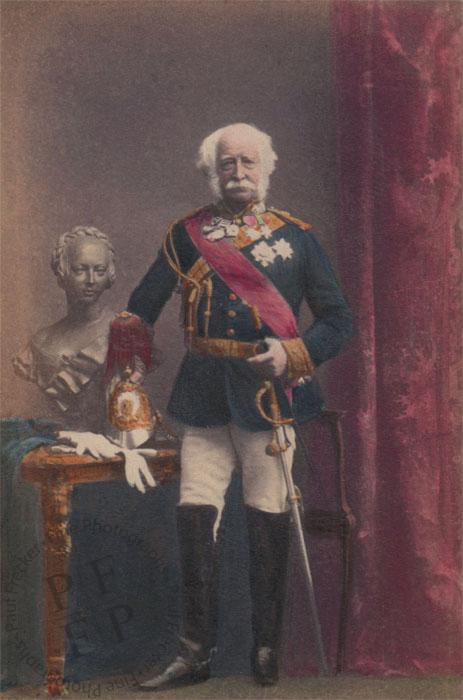Lord Gough of Gujarat
(1799-1869)
5 February 1861
Volume 2, page 192, sitting number 2058.
[The sitter is identified as 'Lord Gough of Goojerat' in the Silvy daybooks.]
Born at Woodstown in County Limerick, Hugh Gough rose to the rank of field-marshal in the British army. During the nineteenth century, he commanded in more general actions than an other officer except the Duke of Wellington.
Entering the army in 1794, he served as a junior officer during the French Revolutionary Wars and was present at the capture of the Cape of Good Hope and later in the West Indies at the capture of Suriname. He commanded the 2nd Battalion of the 87th (Royal Irish Fusiliers) Regiment of Foot in the Peninsular War, and was commander-in-chief during the First Opium War. In August 1843 he was created commander-in-chief of the British forces in India and in February 1849 he defeated the Sikhs at the Battle of Gujarat, though his tactics during the war were the subject of an embittered controversy. On his return to England he was created 1st Viscount Gough of Gujarat. The East India Company awarded him an annual pension of £2000.
He was in later years Colonel of the Royal Horse Guards, Colonel-in-Chief of the 60th Royal Rifles, Colonel of the London Irish Volunteer Rifles, as well as a Knight of St Patrick, of the Star of India, of St Charles of Spain, and a Privy Councillor.
He died at St Helen's, his home in Booterstown near Dublin, on 2 March 1869 and was buried in Stillorgan (formerly a village in its own right but today a suburb of Dublin).

